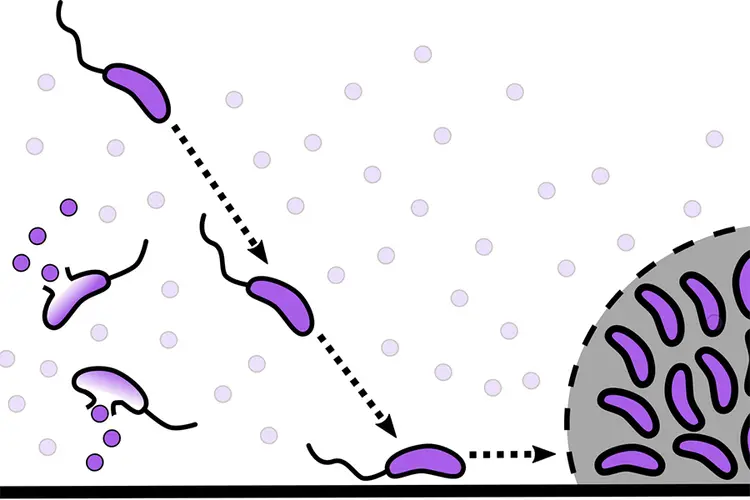
Bridges and Zhang Receive Curci Foundation Research Grants
Media Inquiries
Two researchers from Carnegie Mellon University, Drew Bridges(opens in new window), an assistant professor of biological sciences in the Mellon College of Science, and Martin Zhang(opens in new window), an assistant professor of computational biology in the School of Computer Science, have received The Shurl and Kay Curci Foundation(opens in new window) Research Grants.
Founded in 2006, The Shurl and Kay Curci Foundation supports researchers whose work emphasizes fostering a sustainable future for humankind, focusing on projects with far-reaching and lasting implications in life sciences. The grant provides funding for two years.
Bridges said he plans to use his grant to develop new fluorescent markers to study biofilms, groups of bacteria that clump together for protection. Current markers are not effective because most require oxygen to mature, and oxygen is low in the centers of biofilms. With new markers, Bridges and other researchers will be able to see the details of bacteria’s interactions.
“In these multicellular communities, it’s thought that cells are able to specialize almost like a tissue, where you have certain cells doing a task and different cells doing another task,” Bridges said. “We’re going for a new strategy to make the cell fluorescent. The Curci Foundation grant will support students, research staff and supplies.”
The Bridges lab investigates bacteria in a variety of conditions to see how they interact.
The award will support Zhang’s research on using large-scale genetic data to decipher and link genetic variants to diseases. Zhang said he plans to use genome-wide and single-cell data to better understand cell-type-specific disease mechanisms. Support from the Curci Foundation will allow him to hire students and postdocs in his lab.
“Heritable human diseases manifest in a highly cell-type-specific manner. Studying these mechanisms is critical for our understanding of disease etiology and will inform treatment development,” said Zhang, who joined CMU’s Ray and Stephanie Lane Computational Biology Department (opens in new window)in 2023. “This funding will provide critical financial support and allow us to hire the personnel to carry out the proposed projects, greatly accelerating our research agenda.”
Zhang's lab also develops machine learning and statistical algorithms motivated by genetic applications, such as causal inference, deep learning and more.
Learn more about the Curci Foundation on its website(opens in new window).


